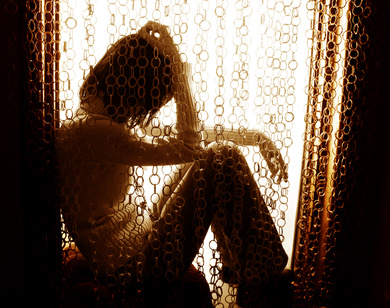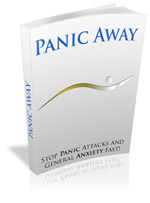Schizophrenia or Anxiety? How Do You Get Schizophrenia

Are you or someone you love suffering from schizophrenia or anxiety? Maybe you are worried that anxiety can lead to schizophrenia? This post will outline what causes schizophrenia and its symptoms to help you determine what you are dealing with.
Schizophrenia is a mental illness that causes changes in perception, thoughts and behavior. It is classified into two broad types: acute and chronic. Acute schizophrenia is probably the type that most comes to mind when people think of this mental disease. This is what is caused when a previously healthy person, typically a young adult, starts showing increasingly odd behavior over a short period time, even in a few weeks.
It can manifest as hallucinations, irrational beliefs or disordered thoughts, basically any illogical or incoherent thinking. The most common symptoms can include, lack of insight, hearing voices, music or other sounds, delusions, suspiciousness, flat moods or speaking thoughts aloud.
Not every patient with acute schizophrenia experiences all of these symptoms. Mood disturbances often accompany these symptoms, such as depression, anxiety, irritability or euphoria. Emotional responses at inappropriate times may also occur, like laughing at sad news or appearing unconcerned when concern is warranted.
Some patients who suffer from anxiety worry that they will develop schizophrenia, but this is not how schizophrenia develops. Usually, a schizophrenic knows where they are, but the presence of the disorded thoughts make them feel confused. Higher mental reasoning is usually impaired and they lack insight as to their condition; they typically find it difficult to plan or organize.
Chronic schizophrenia is the long-term state and is characterized by a lack of drive, under activity and/or social withdrawal. Without intervention this type may spend long periods of time doing absolutely nothing, or engage in repeated and purposeless activity. They can neglect themselves to a dangerous degree. Hallucinations and delusions are common, and often times the person may appear to become used to the disordered thoughts. They may also get the idea that someone is out to get them, but this does not cause any emotional response.
Typically schizophrenics will not know they are experiencing any symptoms, the hallucinations and delusions are so real to them they will not be able to tell the difference between reality and illusions.
Types of delusions include believing they are under the control of another influence or that thoughts are being put into or taken out of their mind. With delusions of persecution, they may be very suspicious of any questions regarding their mental state. If they feel “got at”, this can cause fear and anxiety.
People around them might notice a change in the person’s behavior or the way they speak. Schizophrenics may become focused on issues that seem bizarre to everyone around them.
The causes of schizophrenia are unknown, but may have genetic components. While there is no ‘gene’ for the disease, their typically is a family history. For instance, if a grandparent had the illness, the risk rises to 3%, if one parent is affected, the risk is as high as 10%, when both parents have the disease the risk can rise to 40%.
Other factors that may predispose a person to develop schizophrenia include complications during a pregnancy or childbirth, and difficulties in childhood development. Other triggers can include stressful life events or the use of illegal drugs, such as cannabis.
There are many anti-psychotic medicines available for treating schizophrenia, the goal being to calm someone without making them drowsy. A few of these medicines include, amisupride (eg Solian), olanzapine (eg Zyprexa), and Clozapine (eg Clozarril). These newer medications claim to have fewer side-effects that some of the older anti-psychotics like chlorpromazine (eg Largactil) or hyaloperidol (eg Haldol).
These medications are said to be effective against the positive symptoms such as hallucinations, but seem to have little impact on the negative, like lack of motivation or flat mood.
Some side effects can include, sedation, dry mouth, constipation, blurred vision, or light headedness. These medications can also affect movement, slowing gait or causing tremor or abnormal face and body movement.
There is a high risk that schizophrenia symptoms will recur, treatment should continue for one to two years. Even with continued drug treatment, many will suffer relapses. Higher relapses are likely when medication is discontinued. Remaining on medication does not necessarily prevent relapse, but rather it will reduce the severity and frequency.
Many schizophrenics don’t believe they suffer from any illness, so getting them to stay on the medication can often be difficult.
While anxiety and schizophrenia may seem like they have similar symptoms, anxiety can’t actually lead to schizophrenia and most schizophrenics are unaware of their symptoms. People who suffer from anxiety usually feel their symptoms, from a racing heart to nervousness, sweaty palms, difficulty breathing and more. Schizophrenia symptoms can only be helped by medication, however anxiety sufferers have other options including many natural ways of curing their anxiety. Panic Away is one example of a natural remedy, as well as yoga, meditation and/or taking herbal supplements.

